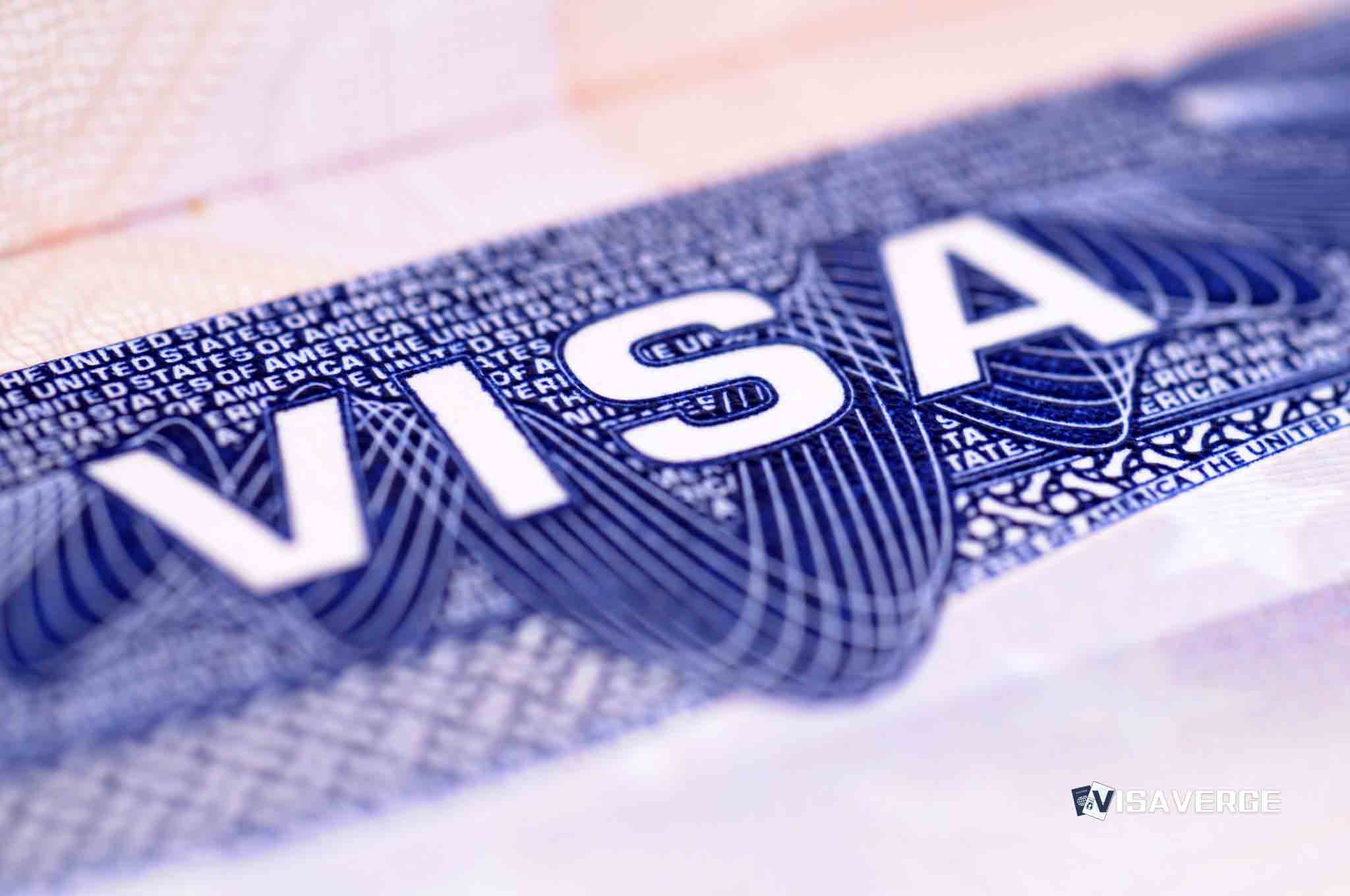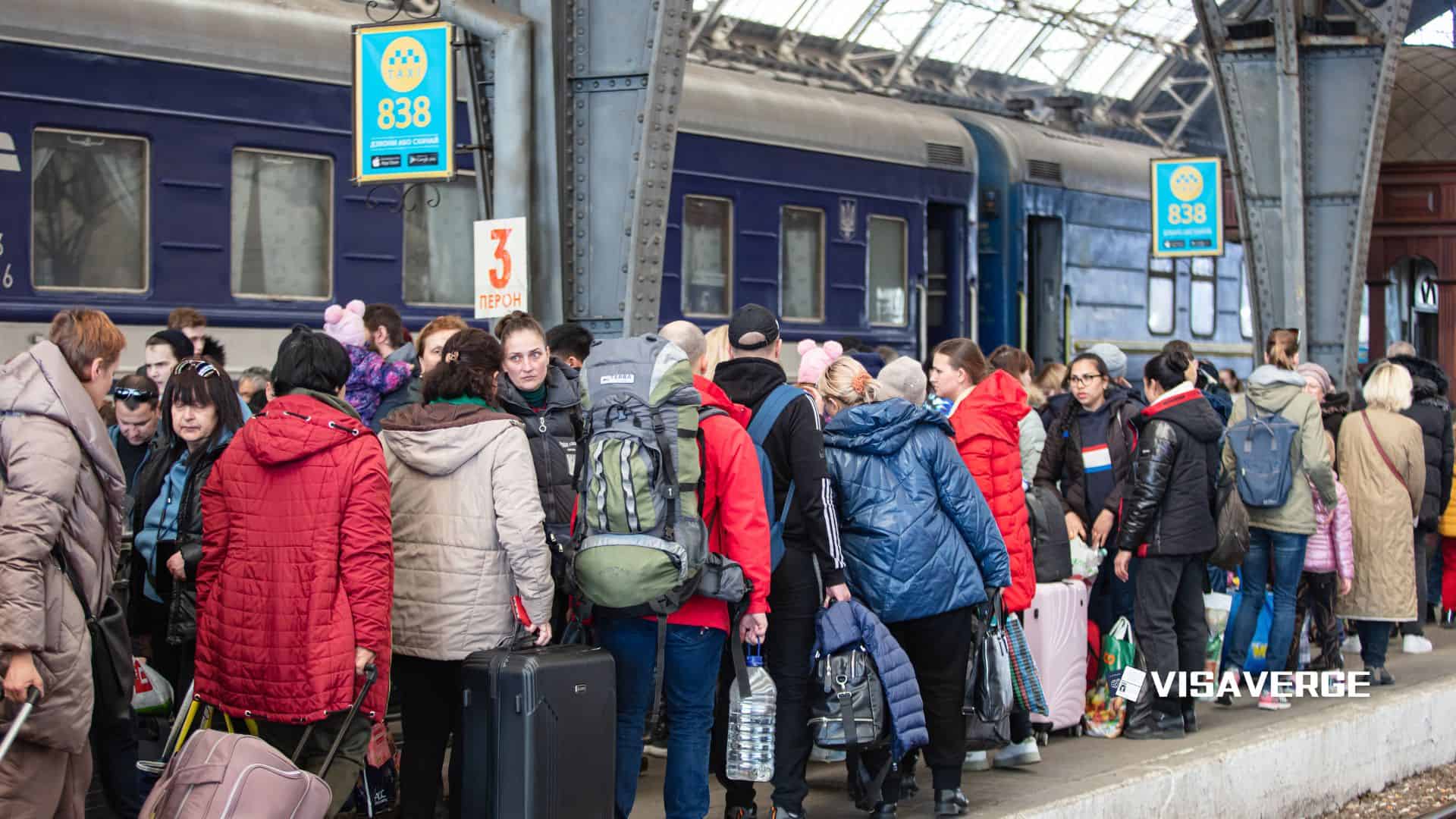Key Takeaways
• Africans lost nearly $70 million in 2024 due to denied visa applications to Europe.
• Rejection rates for Africans reached 40-50% in some countries, much higher than 17.5% global average.
• Schengen visa fees rose from €80 to €90 in June 2024, worsening financial losses.
In 2024, Africans who applied for visas to enter Europe faced a growing and troubling problem: getting denied and losing large amounts of money in the process. The total amount lost by Africans because their visa applications were denied reached nearly $70 million in 2024. This figure shines a light on a costly and unfair practice that affects thousands of families, students, and businesspeople across the continent.
Introduction and Scope

This analysis explores the impact of denied visas on Africans seeking to enter European countries, using only information from recent research and reports gathered through 2024. It covers the financial burdens created by application fees and related costs, the reasons behind the high rejection rates, how these policies shape the movement of people and money between Africa and Europe, and what these trends mean for the future of migration.
Sources for this content include respected outlets and academic analyses such as the London School of Economics [1], Mail & Guardian [2], University of Pretoria’s Centre for Human Rights [3], Henley & Partners Global Mobility Report [4], and Semafor [5]. All figures and findings relate to the calendar years 2023 and 2024.
Summary of Key Findings
- In 2024, nearly $70 million was lost by Africans as a result of denied visa applications to Europe.
- Africans faced rejection rates of up to 40-50% in some countries, compared to a global average of 17.5%.
– Schengen visa application fees increased from €80 to €90 in June 2024. - The losses go beyond fees, as rejected applicants also lose money on flights, booking agencies, and missed opportunities.
- European countries continue to earn major sums from visa applicants, including unrecoverable fees from denied visas.
Financial Impact on Applicants
The $70 million figure for denied visa applications is not just a statistic—it represents the lost savings, earnings, and hope for tens of thousands of Africans. In many countries where incomes are lower, even a single visa application is a large investment. In 2023, Africans lost about €56.3 million (nearly $61 million) to rejected Schengen visa applications, and this number continued to rise into 2024.
A key point is that visa application fees are non-refundable. If an African applicant’s paperwork is denied—which happens often—none of their money is returned. Many applicants save for months or borrow funds from family and friends to cover these fees. When they lose this money after a rejection, it creates fresh economic pressure on households and entire communities.
Visual Description: Imagine a simple bar chart where each bar represents annual African losses due to visa denials. The bars would show a steady rise from around $61 million in 2023 to nearly $70 million in 2024. Behind these bars are smaller, lighter bars showing the growing cost of the application fee itself during the same time.
Disproportionate Rejection Rates for Africans
One of the central points in this situation is just how much harder it is for Africans to get visas to Europe compared to applicants from other regions.
- In 2022, the Schengen visa rejection rate for African applicants reached 30%, which was much higher than the global average of 17.5%.
- In some African countries—including Nigeria, Ghana, and Senegal—rejection rates climbed to as high as 40-50%.
- Even though Africa represented only 24% of total Schengen visa applications, Africans paid about 42% of all money lost to rejected applications in 2023.
This means not only are Africans being denied more often, but they also carry a larger share of the financial burden.
Visual Description: Picture a pie chart showing all global Schengen visa applications, with a slice for Africa labeled 24%. Now, next to it, imagine another chart for rejected application revenue, with Africa representing a much larger 42% slice of the pie.
Why Are Africans Denied More Often?
Research points to several reasons for this pattern:
- Economic Disparities: Visa authorities are more likely to reject applications from countries with lower incomes. Data shows a direct link between a country’s gross domestic product (GDP) and its rejection rate—poorer countries face more refusals.
- Security and Migration Policies: Europe has built tighter border controls, in part to limit irregular migration flows. These policies have made it harder for Africans to qualify for short-term stays, even for business or tourism.
- Diplomatic Issues: The European Union has used visa rules more aggressively as “diplomatic weapons,” making it tougher for countries it sees as not cooperating with migrant returns. Countries like Ethiopia and The Gambia have faced these sanctions.
When visa rules are not applied fairly, groups from certain countries are made to feel unwelcome, and many miss out on educational, business, and cultural opportunities.
Rising Visa Fees Add to the Problem
In June 2024, the cost of a typical Schengen short-term visa rose from €80 to €90. This 12.5% increase affects all applicants but hits Africans even harder because their rejection rates are already high. For many, the cost of just one application equals a large share of their monthly or yearly income.
Additional Costs Beyond Application Fees
The financial story does not stop at application fees:
- Private Agencies: Many applicants pay extra to private agencies or brokers to help with paperwork. These fees are usually not refunded when applications are denied.
- Bookings and Missed Opportunities: Applicants often must book flights and hotels in advance. If their visa is denied, these expenses are lost as well. Business trips, conferences, and cultural events go unattended, blocking opportunities for personal growth and networking.
- Reverse Remittances: Economists have begun using the term “reverse remittances.” Instead of sending money home to Africa, millions flow from Africa into European countries via unrecoverable visa and service fees.
Visual Description: Imagine a diagram showing arrows of money flowing from African applicants in various sectors—students, businesspeople, tourists—moving toward Europe, with side branches splitting off for application fees, agency charges, and booking losses.
European Revenue from Denied African Applicants
The visa system brings in big sums for European countries:
- In 2023, Schengen states made close to $906 million from visa application fees in total, with $145 million coming from applications that were denied.
- Of the €130 million earned by the EU from rejected Schengen visa applications in 2023, 42% came from African applicants—almost double their share of total applications.
Analysis from VisaVerge.com suggests that as the cost of each application goes up, so does the amount of money made by European countries, even when they deny an increasing number of requests from Africans.
Notable Paradox: Mobility and Partnership
An important contradiction sits at the heart of this trend. Europe remains Africa’s largest trading partner and often says it wants to expand legal migration. Yet, Europe’s visa policies have been getting tighter, not more open. This reduces legal mobility—the chance for Africans to visit, study, or build ties in Europe—even while both sides speak about deeper cooperation.
Comparing Past and Present
Looking back just a few years, the situation was less severe:
- In 2022, the rejection rates for Africans were already high, but financial losses were not as extreme as today.
- As the cost of applications went up and border rules grew tighter, the gap between what Europe says about legal routes and the reality facing African visitors has become wider.
Factors Driving Current Trends
Several factors are pushing these trends forward:
- European border policy reforms prioritize “securing” Europe from irregular migration, especially from Africa. This influences consular officers to approve fewer visas, even for short-term visits.
- The COVID-19 pandemic has slowed down visa processing and made the requirements more strict.
- Political disagreements over the return of rejected migrants have led Europe to cut issuance of visas to countries seen as “uncooperative.”
Limitations and Biases in Data
While the available data offers a clear picture of money lost and rejection rates, some limits exist:
- Official sources often do not break down rejection rates or financial losses by occupation, age, or other demographics, making it harder to learn which groups are most affected.
- Many private agency and broker fees are not tracked in official numbers, meaning the real costs might be even higher.
- Some applicants who are denied reapply, losing even more money, but repeat losses of this kind are not always counted in the main totals.
Real-Life Significance
The high costs and rejections impact real people. Families miss reunions, students lose chances to study abroad, and business owners cannot attend meetings or trade fairs. The European dream grows more expensive and more distant for Africans, even as both continents talk about closer ties.
Those who try to recover lost money rarely succeed because there is usually no appeal process for a visa application fee. Non-refundable policies are standard, no matter how strong the applicant’s case.
Implications for the Future
If current trends continue, Africans may lose even more money in coming years due to rising application costs and continuing high rejection rates. More African applicants might turn to unofficial brokers, leading to higher overall expenses and even more disappointment. As Europe’s borders tighten, legal visits might become even harder to achieve, increasing frustration on both sides.
Key Takeaways
- In 2024, nearly $70 million left Africa due to denied visa applications to Europe, stripping resources from families, students, and entrepreneurs.
- Africans are denied visas more often than any other group, with some countries facing rates of up to 50%.
- Application fees are rising, and none of the money is refunded after a denial, increasing financial pain.
- The EU and its member states benefit from these non-refundable systems, earning millions in revenue from rejected requests, while statements about legal migration seem out of touch with policy.
- The true costs to applicants go beyond the official fees, including extra expenses for advice, travel bookings, and lost opportunities.
Next Steps and Official Resource
For Africans considering visa applications to Europe, it’s important to research the process carefully and learn about the most common reasons for refusals. Checking official resources, such as the Schengen Visa Information portal, can help applicants gather up-to-date requirements and guidelines.
As the debate continues and visa rules change, African governments and advocacy organizations are calling for fairer procedures and a true commitment to opening legal pathways. If both sides work together, it may become possible to ease the burden on African applicants, lower rejection rates, and make sure that hopeful travelers are not left out financially or personally.
VisaVerge.com’s investigation reveals that understanding these realities is the first step toward improving both policy and people’s lives. As more facts come to light, those affected will keep pushing for reforms that respect the time, money, and dreams of Africans who wish to travel to, study in, or do business with Europe.
Learn Today
Visa Application Fees
→ Non-refundable payments required to apply for a visa, lost if the visa is denied.
Schengen Visa → A short-term visa allowing travel within 26 European countries in the Schengen Area.
Rejection Rate → The percentage of visa applications denied by authorities, often higher for Africans.
Reverse Remittances → Money flowing from African applicants to Europe through unrecoverable visa and service fees.
Diplomatic Sanctions → Visa restrictions used by the EU against countries not cooperating on migration returns.
This Article in a Nutshell
In 2024, Africans faced unprecedented visa denial losses totaling nearly $70 million. Rising fees and rejection rates strain families, businesses, and students while Europe profits from non-refundable fees amid tighter migration policies.
— By VisaVerge.com
Read more:
• Danish Conservatives back stricter work permit and immigration policies
• Friedrich Merz’s immigration policies face criticism in new global report
• Supreme Court focuses on process in key immigration cases this year
• Immigration raids in Nashville disrupt classrooms as student absences rise
• Immigration Court sets new record for asylum decisions and denials













